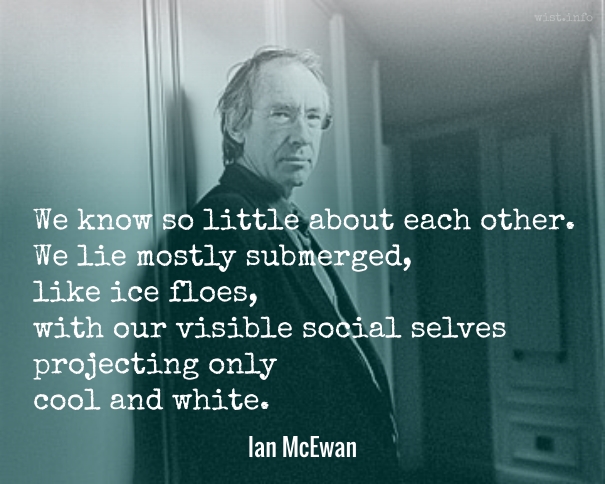Many who have not learned wisdom live wisely.
[Πολλοὶ λόγον μὴ μαθόντες ζῶσι κατὰ λόγον. ]
Democritus (c. 460 BC - c. 370 BC) Greek philosopher
Frag. 53 (Diels) [tr. Bakewell, 1907)]
(Source)
Diels citation "53. (122a N.) DEMOKRATES. 19.1."; collected in Joannes Stobaeus (Stobaios) Anthologium II, 15, 33. Often combined with fragment 53a. Bakewell lists this under "The Golden Sayings of Democritus." Freeman notes this as one of the Gnômae, from a collection called "Maxims of Democratês," but because Stobaeus quotes many of these as "Maxims of Democritus," they are generally attributed to the latter.
Alternate translations:
- "Many who have not learnt Reason, nevertheless live according to reason." [tr. Freeman (1948)].
- "Many live according to reason even if they have not learned it." [tr. @sentantiq (2020)]
- "Many do not learn reason but live in accordance with reason." [tr. Barnes (1987)]
Quotations about:
outward
Note not all quotations have been tagged, so Search may find additional quotes on this topic.
At what point then is the approach of danger to be expected? I answer, if it ever reach us, it must spring up amongst us. It cannot come from abroad. If destruction be our lot, we must ourselves be its author and finisher. As a nation of freemen, we must live through all time, or die by suicide.
Abraham Lincoln (1809-1865) American lawyer, politician, US President (1861-65)
Speech, Young Men’s Lyceum, Springfield, Illinois (27 Jan 1838)
(Source)
This seems to be the source of this far more prosaic, and spurious, Lincoln quote: "America will never be destroyed from the outside. If we falter and lose our freedoms, it will be because we destroyed ourselves."
I don’t mind hidden depths but I insist that there be a surface.
Virtue and learning, like gold, have their intrinsic value: but if they are not polished, they certainly lose a great deal of their lustre; and even polished brass will pass upon more people than rough gold.
Lord Chesterfield (1694-1773) English statesman, wit [Philip Dormer Stanhope]
Letter to his son, #118 (6 Mar 1747)
(Source)







